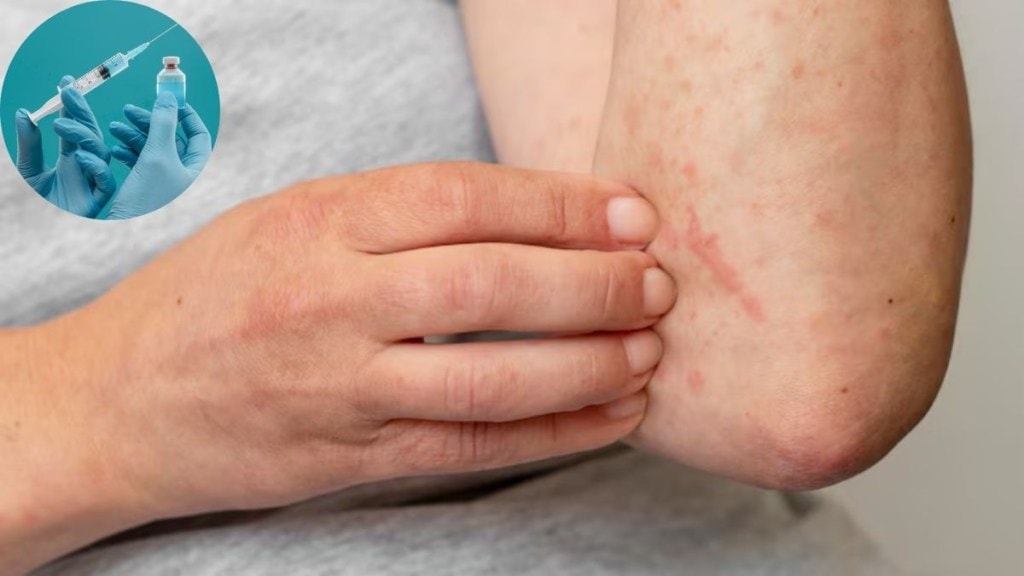Measles is making an unexpected comeback in the US, with over 1,000 cases reported so far this year. According to the Centers for Disease Control and Prevention (CDC), 1,088 cases have been confirmed, with many of them linked to international travel. In response to the rising numbers, the CDC has issued updated travel guidance: All Americans travelling abroad should be vaccinated against measles, no matter where they’re going.
New travel advisory from CDC
Until recently, the CDC mainly recommended the measles-mumps-rubella (MMR) vaccine for travellers heading to countries with known measles outbreaks. But now the agency says the risk of catching measles isn’t just in certain countries—it’s also happening during the travel itself.
“We’re seeing a shift from localized outbreaks to transmission during transit,” said Ashley Darcy-Mahoney, a nursing researcher at George Washington University. She pointed to a recent outbreak in Colorado that started after someone with measles arrived on an international flight into Denver.
Because measles spreads so easily in places like airports and planes, the CDC now advises that:
- Everyone aged 1 year and older should have two doses of the MMR vaccine before travelling internationally.
- Infants aged 6 to 11 months should get one early dose of the vaccine before travel.
- Adults who are unsure about their vaccination status should consult a health expert and get vaccinated if necessary.
Why is this a big deal?
Measles is one of the most contagious viruses in the world. It spreads through the air when an infected person coughs, sneezes or even breathes. The virus can stay in the air or on surfaces for up to two hours. If you’re not protected, it’s easy to catch.
Even though measles was declared eliminated from the US in 2000, the disease keeps coming back—often when unvaccinated travellers bring it home from abroad. Most of the recent US cases were found in unvaccinated people who had travelled internationally.
Symptoms of Measles
The symptoms of measles usually show up about 7 to 14 days after exposure. They start mild but can quickly become serious. Here are signs and symptoms to watch out for:
- High fever (often 104 degrees F or higher)
- Cough
- Runny nose
- Red, watery eyes
- Small white spots inside the mouth (called Koplik spots)
- A red, blotchy skin rash that usually starts on the face and spreads
In some cases, measles can lead to serious complications, such as pneumonia, swelling of the brain (encephalitis), and even death—especially in young children, older adults, and people with weak immunity.
What is the MMR vaccine?
The MMR vaccine protects against measles, mumps, and rubella—three contagious diseases that used to be very common in children before vaccines were widely available.
Here’s how the vaccine schedule typically works:
- First dose: Given between 12 and 15 months of age
- Second dose: Given between 4 and 6 years old
But if you’re travelling, doctors may recommend giving the first dose earlier (as early as 6 months) and making sure older children and adults are up to date.
The vaccine is safe and effective, and getting an extra dose as an adult is not harmful—in fact, it can give extra protection if you’re unsure about your immunity.
If you were vaccinated before 1968 with an older version of the vaccine that used a “killed virus,” the CDC recommends getting at least one dose of the newer, live version.
Tips to stay safe?
If you’re planning a trip abroad—or even just concerned about measles—here are a few simple steps to protect yourself:
- Check your vaccination records. Make sure you and your kids are vaccinated up to date.
- Get vaccinated at least 2 weeks before you travel. This gives your body time to build protection.
- Watch for symptoms if you’ve recently travelled or been around someone who’s sick.
- Avoid close contact with people who have a fever, cough, or rash, especially in crowded places.
With over 1,000 measles cases reported in the US this year, the CDC is staying cautious and leaving no space for it to spread. Their updated travel warning is a reminder that measles is still a real threat—and vaccination is the best way to stop it.
So if you’re planning a vacation, a business trip, or even visiting relatives overseas, add “check MMR status” to your to-do list.








